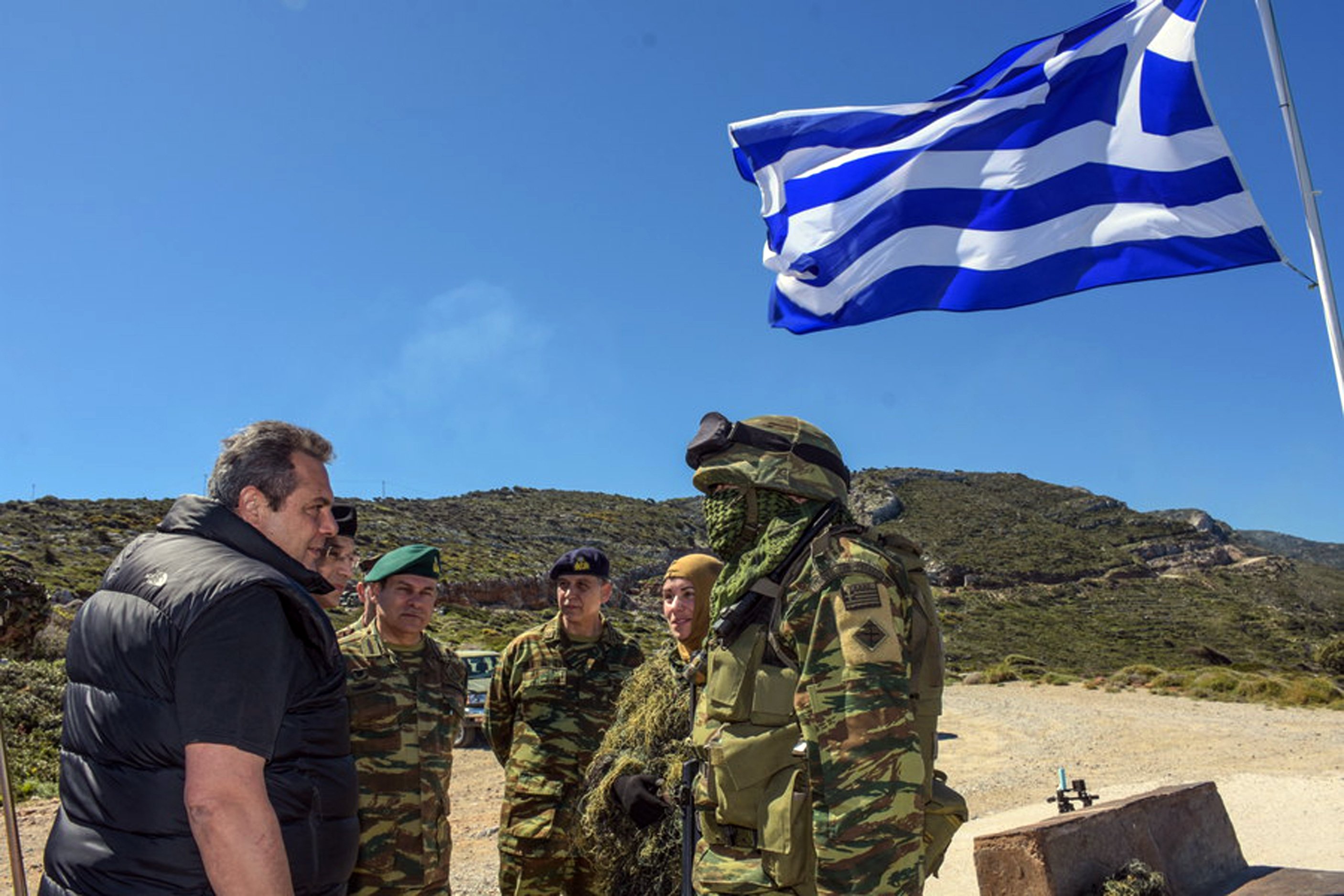Physical Address
Indirizzo: Via Mario Greco 60, Buttigliera Alta, 10090, Torino, Italy
Physical Address
Indirizzo: Via Mario Greco 60, Buttigliera Alta, 10090, Torino, Italy


Greece on Monday announced radical plans to deploy what it called “self-sufficient” army units on the Aegean islands, some of which sit as close as 1,575 meters (5,165 feet) to Türkiye. The plan, part of the so-called “Agenda 2030,” aims to make front-line formations nearly autonomous, capable of growing their own food, generating their own energy and operating without needing orders or resupply from central command.
The move, primarily meant to counter Turkish elements while ensuring Greek supervision in the Aegean, raises several red flags for Türkiye and carries the risk of tempting a response that could upend already fragile balances between the Eastern Mediterranean neighbors.
Turkish defense experts argue Athens’ move, on islands that are required to remain demilitarized under international treaties, goes beyond a defensive upgrade and ventures into an aggressive posture aimed at Türkiye.
Retired Rear Adm. Cihat Yaycı, a prominent architect of Türkiye’s maritime doctrine “Blue Homeland,” called the plan “a clear violation of international law” and a “new manifestation of Greece’s lawless approach.”
The 1923 Treaty of Lausanne and the 1947 Paris Peace Treaty granted Greece sovereignty over 23 islands only on the strict condition that they would remain non-military in status.
“Greece has violated the very condition under which sovereignty was transferred,” he said in an exclusive interview with Daily Sabah, pointing to the deployment of military assets, airports, tanks and anti-drone systems as illegitimate.
“These developments must be read not as isolated defense upgrades but as part of a larger effort to undermine the non-military status of the islands through the use of civilians and pseudo-civilian structures,” Yaycı added. “This opens the door to contesting Greek sovereignty over these islands under international law.”
While Türkiye has long expressed concern over the militarization of islands in the Aegean, Yaycı emphasized that the new Greek doctrine signals an unprecedented shift toward operational independence, evoking not just legal concerns but potential security threats.
“This step by Greece constitutes a direct sign of aggression,” he said. “It has nothing to do with good neighborly relations or alliance solidarity within NATO.”
Echoing this assessment, Murat Aslan, a security analyst at Turkish think-tank Foundation for Political, Economic and Social Research (SETA) and former Turkish military officer, noted that the concept of “autonomous army units” poses a serious risk to Türkiye’s regional security.
“If any of these islands, especially those legally defined as demilitarized, are militarized under the guise of autonomous army units, it’s both unacceptable and dangerous for Türkiye,” Aslan told Daily Sabah. “Such moves could eventually interfere with maritime trade and freedom of navigation in the Aegean.”
Both experts argued that the Greek plan fits a larger pattern of provocations.
“Greece has doctrinally rehearsed offensive operations,” Aslan said, referencing recent military exercises involving amphibious landings on Türkiye’s western coast.
“If a country is purchasing equipment designed for breaching defenses rather than building them, that says a lot about their intentions,” he said.
Aslan pointed out that Greece has recently procured thousands of armored vehicles and advanced systems from the United States and Germany, often at no cost, through EU and NATO grants.
“Greece, rather than fighting with Türkiye, has a method of strengthening its defense without spending money and at the same time gaining the political support of other states, in other words, obtaining a security guarantee by ‘making a fuss,’” Aslan explained.
He said Greece’s strategy is to portray Türkiye as a threat, thereby securing foreign political guarantees and defense aid.
“They strengthen their defense posture without spending money and gain international backing in the process,” he said.
Yet, for Ankara, the threat may be less about Greece’s actual military capacity and more about how these developments shift the political and legal playing field.
“Türkiye doesn’t perceive Greece as a current threat but rather a risk, especially if such maneuvers continue as a fait accompli,” Aslan explained. “It’s not just about matching moves militarily. It’s about protecting national rights under international law.”
Yaycı underscored this legal dimension, urging Türkiye to invoke Article 60 of the 1969 Vienna Convention on the Law of Treaties. Under this article, a fundamental breach of a treaty can allow the injured party to suspend or terminate the agreement.
“It’s time Türkiye loudly and unequivocally declares that Greece’s actions constitute such a breach,” he said, adding that Ankara should pursue legal, diplomatic, and if necessary, military countermeasures.
Türkiye’s military, he noted, is already well-positioned.
“We are among the top countries in defense exports, with advanced surveillance, command and weapons systems,” Yaycı said. “Türkiye is in the Super League; Greece is still playing in the amateur division.”
Beyond the bilateral tension, the Greek redeployment could also shake NATO cohesion in the region.
Both experts expressed concern that Greece’s growing defense ties with the United States and France might be used to reposition NATO’s eastern flank around Türkiye, effectively isolating Ankara.
“Greece’s cooperation with third countries on demilitarized islands contradicts NATO’s founding principles,” Yaycı warned. “It threatens alliance trust and undermines the balance in the Eastern Mediterranean. It may be an indirect attempt to push Türkiye out of the European and trans-Atlantic defense space.”
Aslan also pointed to the strategic significance of recent U.S. deployments in Greece, especially around Alexandroupoli, located just 40 kilometers from Türkiye’s border.
“The risk is that these forward bases are being positioned as part of a broader deterrence line, one not necessarily aimed at Greece’s defense but at Türkiye’s containment,” he said.
Still, Aslan cautioned against overreaction.
“Türkiye has many pressing regional issues, Syria, the Caucasus, the Russia-Ukraine war. Greece is just one piece of the puzzle,” he said. “But if Athens turns militarization into a long-term strategy, Türkiye will act, legally, diplomatically, and if required, operationally,” he said.